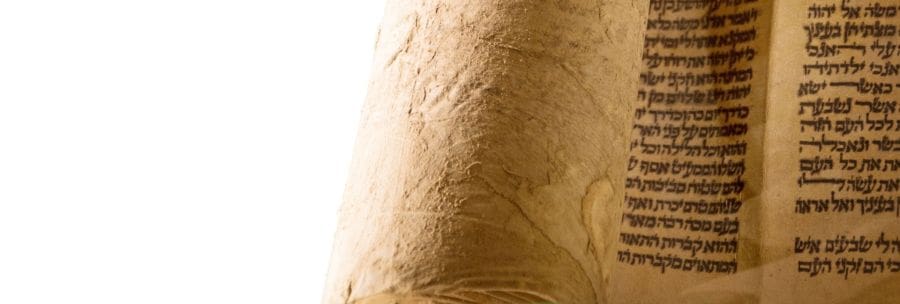
Hear, O Israel: What Does the Shema Mean for Christians?
The Shema is recited at synagogues worldwide and twice daily by Orthodox Jews and some Christians. Its meaning is deep and answers life’s most challenging questions. When sung in Hebrew, its cadence is soothing and poetic. It consists of three parts, beginning with Deuteronomy 6:4-9.
“Hear, O Israel! The Lord is our God, the Lord is one! You shall love the Lord your God with all your heart and with all your soul and with all your might. These words, which I am commanding you today, shall be on your heart. You shall teach them diligently to your sons and shall talk of them when you sit in your house and when you walk by the way and when you lie down and when you rise up. You shall bind them as a sign on your hand and they shall be as frontals on your forehead. You shall write them on the doorposts of your house and on your gates.”
Deuteronomy 6:4-9 (NASB)
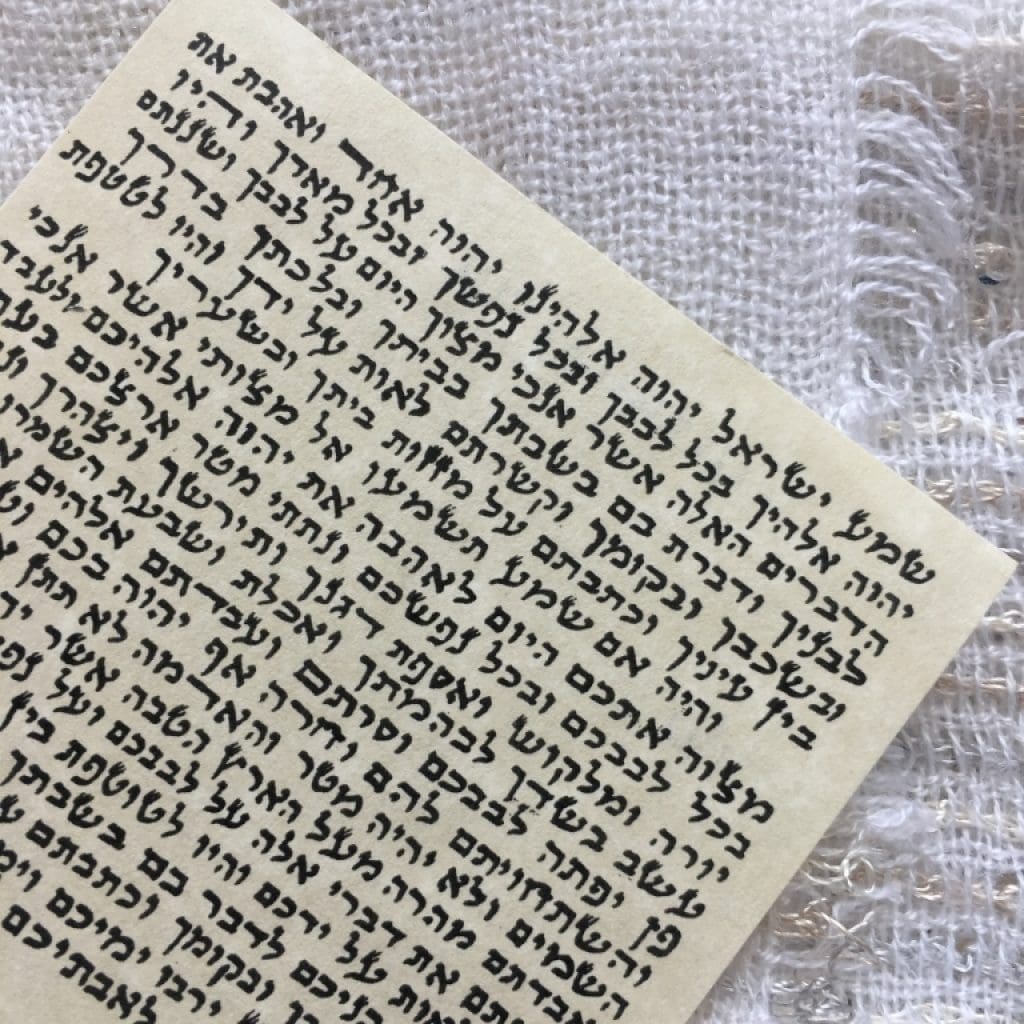
The Yoke of the Kingdom of Heaven
Reciting the Shema is sometimes called accepting the yoke of the kingdom of heaven. It’s referred to this way because, by saying the words of the Shema, we acknowledge that we are responsible for following them and are committed to God and His commands.
Facing East
It is often said while facing East. Facing East is done because people in the Bible said prayers in the direction of the Temple. Praying in this way is demonstrated by Daniel in Dan. 6:10. The practice comes from the following verses out of Solomon’s prayer to God in the dedication of the Temple.
“Yet have regard to the prayer of Your servant and to his supplication, O Lord my God, to listen to the cry and to the prayer which Your servant prays before You today; that Your eyes may be open toward this house night and day, toward the place of which You have said, ‘My name shall be there,’ to listen to the prayer which Your servant shall pray toward this place. Listen to the supplication of Your servant and of Your people Israel, when they pray toward this place; hear in heaven Your dwelling place; hear and forgive.”
1 Kings 8:28-30 (NASB)
“Also concerning the foreigner who is not of Your people Israel, when he comes from a far country for Your name’s sake (for they will hear of Your great name and Your mighty hand, and of Your outstretched arm); when he comes and prays toward this house, hear in heaven Your dwelling place, and do according to all for which the foreigner calls to You, in order that all the peoples of the earth may know Your name, to fear You, as do Your people Israel, and that they may know that this house which I have built is called by Your name.”
1 Kings 8:41-43 (NASB)
Of course, God can hear prayers said in any direction, but facing Jerusalem while reciting the Shema reminds us of God’s desire to dwell with His people and hear our prayers. It also reminds us that Jesus is returning to reign in the new kingdom of Jerusalem, as promised.
Phrases of the Shema and their meanings
Each phrase of the Shema is relevant to us as Christians. Below is a summary of the meaning of each phrase and what it means for us and our faith.
“Hear, O Israel!”
(In Hebrew – “Shema, Yisrael”)
This first phrase of the Shema is the most recited portion. It is a call to God’s people to acknowledge that God is our only God – and that we are His people. “Shema” literally means “hear” or “listen,” but it implies more than that. It implies that we should not only hear the following verses but also act, showing in how we live that we believe them.
When we don’t know what to do in our lives, the Shema reminds us to listen. We are to hear what God has to say with faithful ears, be prepared to do what he commands of us, and continually follow His guidance.
“The Lord is our God”
(In Hebrew – “Adonai Eloheinu”)
The command to listen is followed by the name of God (YHVH), but out of respect and obedience to the third commandment, God’s name is represented by “Adonai” instead. This phrase is said with great reverence and is said while bowing. It should humble and forever awe us that we have the great privilege of calling the Creator of the universe “our God”! How blessed are we?!
“The Lord is one”
(In Hebrew – “Adonai Echad”)
God is the only one deserving of our worship. No one, not political figures, other gods, our families, or even ourselves, comes close to God’s caliber of significance. He is to be our focus and our purpose.
I have also heard this verse discussed considering the pagan people groups surrounding the people of Israel at the time of Moses. Given that the neighboring peoples had numerous gods, having just one God would have set the Hebrew people apart noticeably.
“Blessed is the name of His glorious kingdom forever and ever”
(In Hebrew – “Barookh shem k’vod malkhooto l’olam vaed”)
While not included in Deuteronomy, rabbis added this, and it is therefore said in an undertone, not at a normal volume as the rest of the Shema. Its purpose is to affirm God’s kingship throughout eternity.
“You shall love the Lord your God with all your heart and with all your soul and with all your might”
(In Hebrew – “V’ahavta et adonai elohekha b’kohl l’vavkha oovkohl nafsh’kha, oovkohl me’odekha”)
Referred to as the v’ahavta, this phrase answers the question of purpose in our lives. With all our hearts, souls, and might, we’re to love God. It’s simply stated, but it takes a lifetime to learn – and then some!
When the Bible talks about the heart, it isn’t an emotional organ but one of discernment, reason, and commitment. When we love God with our hearts, we don’t have a mushy, romantic feeling toward God; we commit. We’re all in. Our faith in Him is solid, and we love all that is from Him and reject all that is not in our lives.
The concept of our “soul” is somewhat ambiguous, but the best description I’ve heard is that it is our innermost being. How do we love God with our souls? We are devoted to Him with everything we are. There is nothing we try to hide from him. He knows us better than we know ourselves because He made us, so we can consult Him if we want to get to know ourselves better!
“Search me, O God, and know my heart;
Psalm 139:23-24 (NASB)
Try me and know my anxious thoughts;
And see if there be any hurtful way in me,
And lead me in the everlasting way.”
The word for “might” is “me’odekha.” It is more literally translated as “very, very much” or “muchness.” Loving God with all your “muchness” is something that consumes you. It is intertwined in everything you do and is something people can see when observing your life.
“These words, which I am commanding you today, shall be on your heart”
(In Hebrew – “V’hayoo hadvareem ha’ayleh, ‘asher ‘anokhee m’tsavkha hayom al l’vavekha”)
Interestingly, the commands were to be on the hearts of the Israelites. The common understanding is that the Law was at this time written on stone, and its being written on our hearts only occurred later, post-Jesus, when the Holy Spirit was given to the apostles. God’s words were to be on the hearts of His people from day one, not only after the New Covenant was instated.
“You shall teach them diligently to your sons and shall talk of them when you sit in your house and when you walk by the way and when you lie down and when you rise up. You shall bind them as a sign on your hand, and they shall be as frontals on your forehead. You shall write them on the doorposts of your house and on your gates.”
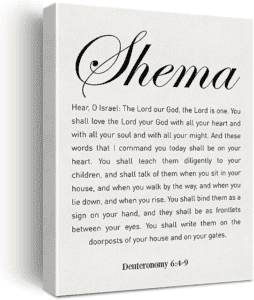
(In Hebrew – “v’sheenantam l’vanekha, v’deebarta bam b’sheevtkha b’vaytekha, oovlekht’kha vaderek oovshakhb’kha, oovkoomekha. Ookshartam le’ot al yadekha, v’hayoo l’totafot bayn aynekha. Ookhtavtam alm’zoozot baytekha oovish’arekha.”)
This phrase is taken literally by orthodox Jews using tefillin (or phylacteries) and mezuzahs. Tefillin are small leather boxes containing scripture attached to the forehead and arm using leather bands. Tefillin is done to fulfill the part of the command saying, “bind them as a sign on your hand, and they shall be frontals on your forehead.” Mezuzahs are small boxes containing scripture that are adhered to the doorposts of one’s house. These are to fulfill the command to “write them on the doorposts of your house.” While these are great reminders, I think God was trying to ensure that we kept His commands first and foremost in all areas of our lives. I don’t think He wanted to limit His commands to things like doorposts and gates, but instead, to be throughout our lives, schedules, homes, and cities when we travel and when we are home.
3 parts of the Shema
There are three parts to the complete Shema. Although the remaining two parts are also meaningful, I focused this post on the first part, the one my family recites and the version recited at our synagogue and others. Here’s a summary of the second and third parts of the complete Shema.
The second part, called the Vehayah, is taken from Deuteronomy 11:13-21. This part covers obedience to God and the blessings that result, and it also includes a warning of what disobedience brings. It then repeats that these words should remain on your heart and that you should teach them to your children, etc., just as it says in part one. Its name, the Vehayah, is the first word of this section of the Shema, and it means “and it shall be” or “it shall come about.”
Part three is from Numbers 15:37-41. This section includes the command that God gave the Israelites to wear tassels (tzitzit) with blue cords on the corners of their garments so they’d look at it and remember God’s commands and not go their own way.
Tzitzits (tzitziot is the correct plural in Hebrew) look like this, and if you wish to purchase them, click on the picture below.
They are usually attached to a prayer shawl (called a Tallit) or another four-cornered garment. You may have seen depictions of Jesus or the apostle Paul wearing a similar garment.
The most prominent of Jewish prayers, the Shema, holds deep meaning for Christians, who share the same awesome one God. Recited daily for thousands of years, the Shema would have even been said at least twice daily by our Savior, Jesus. When asked what the greatest commandment was, his response was the Shema!
”One of the scribes came and heard them arguing, and recognizing that He had answered them well, asked Him, “What commandment is the foremost of all?” Jesus answered, “The foremost is, ‘Hear, O Israel! The Lord our God is one Lord; and you shall love the Lord your God with all your heart, and with all your soul, and with all your mind, and with all your strength.’ “
Mark 12:28-30 (NASB)
Jesus’s reference to it as the greatest commandment should draw our attention. Reciting the Shema as Christians keeps us focused on what God wants us to be – on Him, obedience to His commands, and witnessing to others about them.
Comments (36)
Leave a Reply Cancel reply
Search
Recent Comments
- Denise Kerhlikar on Explaining The Chosen: Season 3, Episode 3: Physician Heal Yourself
- DSS on Wild Olive Branches: The Blessing of Being Grafted In
- Nicolai Marvin on An Introduction to the Hebrew Vowels
- Kathy on How to Find a Hebraic Congregation
- Amy on Explaining The Chosen: Season 1, Episode 3: Jesus Loves the Little Children
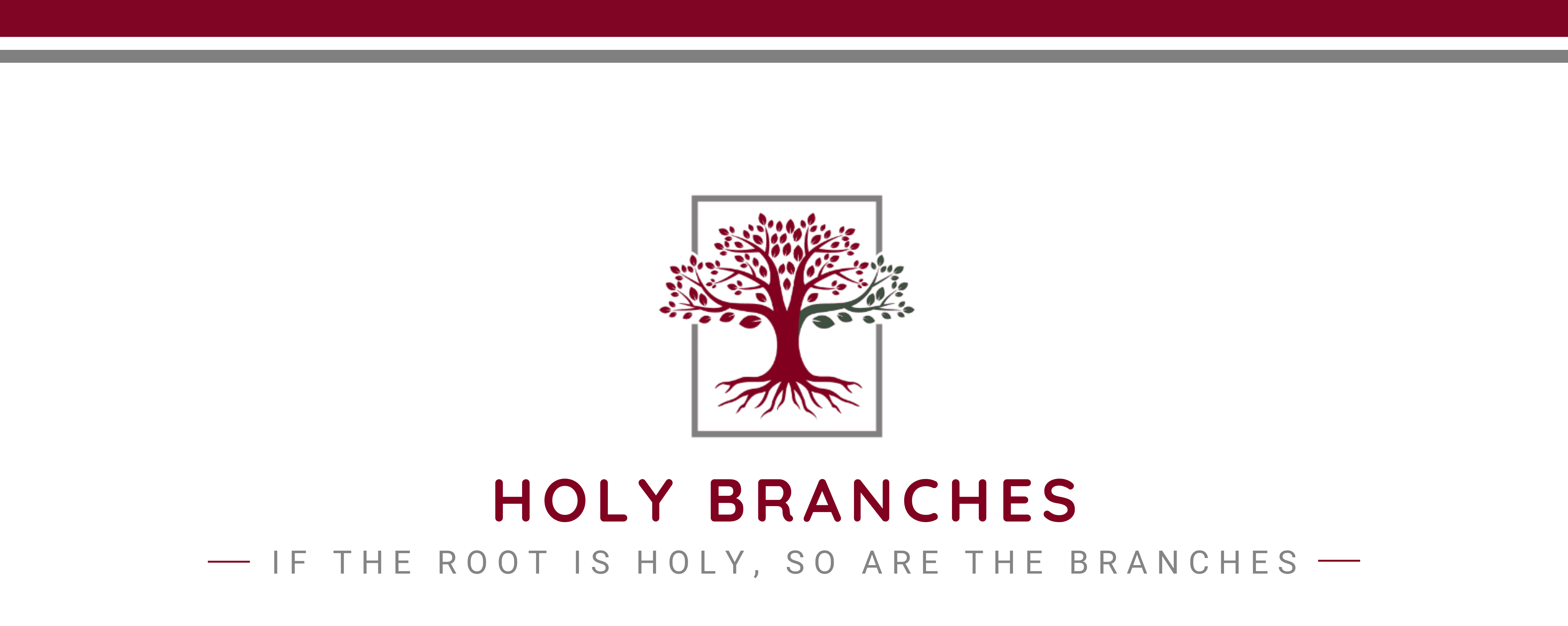
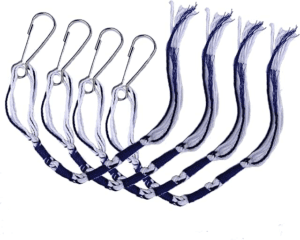
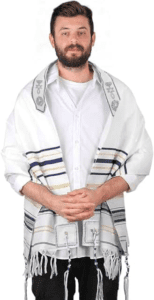



Why do Christians say they follow Jesus, and then refuse to follow him by adopting the Shema as their creed? Is Jesus pleased with this “say one thing and do another”?
Many Christians don’t know the connection between what Jesus was saying and the Shema. I’m hoping more and more make the connection and have the opportunity to follow him in a deeper and more meaningful way. Shalom!
Hebrewrootsmom, it has been good having dialogue with you. First, I believe in proper hermeneutics which I believe that you are trying to uphold and I am less. I have not discussed this with anyone and am responsible alone. If a language custom, established rules, and historical as well as proper exegesis of the original context and sometimes cross reference of equally corresponding texts are maintained then we are properly interpreting a text. Continue to be strong in upholding the truth of God’s inspired and inerrant Word.
Have a “grace day”!
Hebrewrootsmom, hello, again! Thank-you, for your patience. I was afraid that you would interpret my motivation as to force a meaning on the text but it just does not seem sensible to me. God has always existed as a tri-unity as revealed even by Moses and the prophets and since all three persons were involved in creation, then why could not the singular and plural together signify that God himself, rather than man’s universal rules, wanted to show a plurality in a unity, as in Gen, 1:1? I am not opposed to rules and realize that they are necessary for accurate understanding but sometimes I wonder if we will see we may have something wrong when we see the LORD of all creation?
I appreciate you and your knowledge in Hebrew, as I have a daughter who has a Masters in English from a Reformed seminary, and has always had a natural God-given talent for languages. I currently “am beginning” to learn Koine Greek at an older age but have always had a desire to know God’s inspired Word from the original ever since he saved me from the false works oriented gospel of Rome.
Thanks, again!
Bill
Job 42:2
Hebrewrootsmom, hello! I am just wondering who first made the Hebrew rule and are the rules universally true? In Ex. 20:23, I am wondering if there is a singular or plural person verbs in agreement for God? Thank-you!
Are you referring to the Hebrew grammar rule where I said the verb and noun must be in agreement? I’m not sure who first made that rule for Hebrew, but that rule is also in English and every other language I’ve studied.
In Exodus 20:23, the word used for “gods” is Elohai (אֱלֹהֵי). Yes, that’s plural, but it’s in the construct form – “gods of silver” and “gods of gold.” The verb in this sentence isn’t showing the action of the noun “gods.” The verb in this sentence, asah (עָשָׂה), describes what the subject (“you”, plural) is doing. “You shall not make gods of silver…”. So there is no verb we can look at in this verse to see if this usage of Elohim is plural or singular.
Given this conversation, I have a couple of suggestions for you.
Instead of seeking to force Genesis 1:1 to mean something it doesn’t say (that Elohim is plural, proving the Trinity concept), seek other places in Scripture to find out if your theory is true. Rabbi Greg Hershberg says that when studying the Bible, many people “shoot an arrow, then draw a target around it.” God will speak to you through His word, but you must genuinely let Him. Knowing a part of doctrine as fact and then going to the Bible to find places to prove it is a backward way to study Scripture.
My other suggestion is that you study the Bible’s original languages. You seem like the type of person seeking the meaning revealed in the Hebrew text, so I suggest you start there. I found that learning Hebrew was incredibly rewarding, and it made my Bible study so rich and increased my understanding. Here are some resources for learning Hebrew: https://holybranches.com/how-to-learn-hebrew-if-youre-busy/
Shalom!
Hebrewrootsmom, greetings! I was just wondering if there is a word for God singular, then why use the word that normally means plural? Do not case endings of noun have significance. Are the other words of variance that you mentioned do they parallel El and Elohim? Have another “grace day”!
Hello again!
We may be able to argue a case for plural “El” being used in Genesis 1:1 but, again, the verb that follows Elohim does not agree with a plural noun so that argument is invalid. The verb following Elohim in that verse is bara (בָּרָא) which is in the 3rd person masculine singular verb form. If Elohim was plural, the verb following it (3rd person masculine plural form) would be baroo (בָּרְאוּ).
The noun suffix does have significance but, again, not all Hebrew words with “im (ים)” endings are plural. Also, the verb tense must agree with the noun in number (singular/plural) and in person (1st, 2nd, 3rd). If Elohim is plural and bara is singular, they do not agree.
As for why Elohim is written in the Hebrew Scripture in this verse rather than another name for God – I’m not exactly sure. There are different aspects of God revealed when certain names for Him are used though. Here’s the link to my articles on the Hebrew names of God if you’re interested in further reading on that subject.
Throughout Scripture, God has a remnant, Hid chosen people, the elect, the N.T. Israel of a circumcised heart. From the very “first” verse in God’s holy word one finds the Hebrew plural of El, which is Elohim, as the eternal Tri-unity God, who CREATED heaven and earth!
In the same very first chapter of the Bible we find this eternal, infinite, almighty tri-unity God stating, “Then God said, Let US make man in OUR image, according to OUR likeness; and let them rule over the fish of the sea and over the birds of the sky and over the cattle and over all the earth, and over every creeping thing that creeps on the earth.” Gen. 1:26 (NAS.) (I have added capitals for “CREATED, US and OUR, for emphasis).
1. May people use “Elohim” being plural as evidence for the Trinity but a little bit of Hebrew knowledge can be a confusing thing! For example, here are some other Hebrew words end in “im” that are not plural: mayim (water) or panim (face). Also, the verb following Elohim in that verse is bara, which is in the masculine singular form, not the masculine plural. While there are other places in the Bible that may support a Trinitarian view, Genesis 1:1 is not one of them.
2. In Genesis 1:26, you could make an argument for the Trinity but there are other valid interpretations of this verse out there (look up the “plural of majesty” or the “royal ‘we’”, common in Hebrew if you’re interested in further research into this Hebraic style of writing.).
3. “NT Israel of a circumcised heart” does not replace the actual nation of Israel chosen by God as His people. Paul gives an excellent explanation of how we have access to the blessings God gave Israel, as well as the respect we should have for the Jewish people, in Romans 11 and you can read my article on that here: Wild Olive Branches: The Blessing of Being Grafted In
4. How do you interpret Deuteronomy 6:4, “…the LORD is one”?
Thank you for this very informative article. As a converted Christian to Messianic Judaism I have to testify to the greatness of the one Hashem and the delights we are experiencing in our family by beginning to follow the Torah and enjoy the Sabbath rest and Festivals. Finally the Bible all makes perfect sense. Shalom.
Your comment “Finally the Bible all makes sense” resonates with me also. That’s so true. Shalom and blessings to you!
No one has mentioned the fact that the last word in the shema echad meaning a compound one. The other word for one in Hebrew is Yachid meaning an absolute one. Moses used echad to let us know that the trinity has existed since the beginning. In Genesis it says “Let Us make man in Our image “
I am not a preacher or Priest I did however grow up in the Roman Catholic denomination of Christianity, so I can say with certainty Christians do have 1 God not 3 as some here have apparently misunderstood the trinity concept. If a Christian has 3 Gods he is not a Christian as he has yet to understand the Trinity and how God, Jesus and the Holy Spirit (formerly called Holy Ghost) are in fact 1 God.
St. Patrick tried to explain it as a 3 leaf clover. The leaf is one but it has 3 leaflet (possibly the wrong word for it) parts.
It’s not really easily explainable but I’ll give it a try.
You might want to think of the concept as God, Jesus and the Holy Spirit (the trinity) as being spiritually not physically but in spirit as being a bit like conjoined twins sharing 1 body but in this case sharing 1 spirit. They are sharing everything between 3 facets of God’s personality (not like split personality disorder very different and closer to what would have to be called a tri-mese twin in the spiritual sense that case it would be 3 heads 1 body but it’s not quite accurate to say that of the trinity since they share the same spirit they share thoughts feelings knowledge everything as if it was 1 head on 3 bodies.
Anyhow I hope they helps you understand they Christians do not have 3 Gods (unless they themselves misunderstand the concept of the trinity, which admittedly a number of Christians do).
I will say I believe Jesus is 1 with God (the easiest way for it to be explained was to say he is the Son of God as you can see trying to explain the reality of the trinity is extremely difficult to do, and even more difficult to understand especially if you are coming to Christianity or studying it from a non-Christian perspective (like St. Paul when trying to explain it to the Romans, Ephesians and others around 2000 years ago).
I also believe God is 1 God.
I believe Jesus was 100% Jewish and to the best of his abilities followed all the traditions (not always succeeding with following the human made ones like not healing a sick person on the Sabbath (he asked the people who objected which of them if their oxen fell in a well would hesitate to save it even if it was the Sabbath as well as whether it is good or evil to do good deeds on the Sabbath to try and get them to tell the difference between man’s traditions and Gods literal written laws as they are written (not as interpreted).
I hope this helps you to understand that Christianity is not the worship of 3 false pagan gods. We worship the 1 god the God of the Jewish people.
We don’t necessarily know all the traditions of the Jewish people or necessarily understand them having been raised by non Jewish parents in non Jewish families (at least I don’t give that reason) but we believe in the same God and we do have the Torah (the first 5 books of the Bible) plus the books that are not accepted as part of the Torah. I have actually read through the whole Bible (though I am sure you read through the Torah more often then I read through the entire Bible which I did in the a section a day manner recommended by a non-Catholic televangelist). I respect that Jesus was Jewish and want to know more about your beliefs and traditions. I only just heard about Shema Mezuzas
though I’ve heard the English words in church but after having read the part of the Bible/Torah saying to write some words over your door I did try and write them on the door post though it was hard to do. Because Jesus himself would have followed that and done that before he became a traveling teacher healer (Rabbi?) I thought I should do it it seemed right.
So Christians do not have 3 Gods we have 1 God the same as Jewish people have but we have the trinity concept that confuses people not raised or taught about it that makes people think we have 3 gods (and yes there are some Christians that misunderstand it themselves and may very well be worshipping 3 gods instead of the 1 god because of a misunderstanding of the trinity.
Jews are Monotheistic, the Shema is an example. Christians aren’t, they have God the Father, God the Son and God the Holy Spirit. Not the same! Elohim or the God of Israel does not share his glory to another Isaiah 48:11, Isaiah 42:8. How can Jesus be God and seated at the right hand of his Father at the same time?, he is the Son not the Father. How many times he referred to God as his Father? Even on the cross dying, he said: Father why have you forsaken me? If He is God why then he died? God has no beginning or end. That is Christianity, a Babel tower. Confusion! Many think they have left Rome, but Rome have not left them. Catholics and Christians are Twins!
I am sorry, but I don’t get the relation between Christians and the Jews-Israelites-Hebrew. The word Christian derives from the word Christ wich is Cristos in Greek and it means Annointed. Like Yeshua also Samuel, David, Saul among others, they were anointed “Cristos”. It is a mere translations from hebrew to greek language and that does not define G-d’s people as Christians but Israelites as those who join them or Exodus 12:49, Exodus 20:10 Ruth 1:16-17 Romans 11. The grafted ones become part of the branch not the opposite. The root is Jew a Hebrew, the King of Israel. A Jew does not identify with Christians but with their Jew King Yeshua Hamashiac the Annointed and consecrated.
Only Mark 12:29 correctly translates Deut.6:4. “Hear O Israel, the Lord (sacred name) our God, the Lord (sacred name) is one.”
Otherwise, all early church documents translate it as “Hear O Israel, the Lord ‘thy’ God is one.” Or, Hear O Israel, the Lord ‘thy’ God is one Lord.” There is only one exception, it is in an early Jewish Christian document, called the ‘Constitutions of the Holy Apostles’ : “Hear, O Israel; the Lord ‘our’ God is one Lord.” (Book II, section ii, paragraph vi)
Moses included himself with the Shema when he said to his fellow Israelites, the LORD ‘our’ God, not ‘thy’ God. As a prophet like unto Moses, Jesus Christ, the Son of God repeats Moses by saying to the scribe, ‘the Lord (sacred name) ‘our’ God, the Lord (sacred name) is one.’ He did not say to the scribe, the Lord, ‘thy’ God.
It is obvious that Jesus Christ did not equate himself equally with the one true God, nor equally with the sacred name of God who is one. The one true God of Moses and of Israel, is the one true God of Jesus Christ, the Son of God.
Hebrew mom, may I ask can a gentile join the Hebrew faith as a Christian and be welcome? Can I go to a Jewish temple a synagogue and join the Hebrew faith as a Christian? I’m in Cleveland ohio usa.
Hello! The short answer to your first question is yes, you’re welcome to join the Hebrew faith. I do not, however, think you’d be welcome in most Jewish synagogues as a Believer.
Most Christians in the Hebrew faith don’t consider it a different faith than Christianity, although it does look a lot different than traditional Christianity in practice. We believe in Jesus as our savior but we also believe that other Biblical aspects of our faith apply.
As far as places to worship, most Messianic Jewish (Jews that believe Jesus is the Messiah) congregations are open to Christians. There are also non-Jewish Hebraic Christian congregations that are usually open to visitors. This is a good place to start to find one in your area: https://holybranches.com/how-to-find-a-hebrew-roots-congregation/
Thank you hbrewrootsmom for this wonderful explanation of the Shema… I’ve posted Muzusah on both doors of my home…. looking for a prayer to pray during my comings and goings…. blessings in the name of Yeshua our God, King, Savior and Redeemer.
Blessings to you also, Chris!
The Shema has nothing to do with xistians, xistianity is idol worship.
Hello, Betzalel! I’d like to know more what you mean about Christianity being idol worship. The Shema is in the Christian Bible as well and is referred to as the greatest of the commandments by our Jewish rabbi, Jesus, so we believe it does have a lot to do with our faith.
Hi again John, you really do pose some thought-provoking questions. Miracles are an interesting concept. I believe that no miracles happen unless God allows it therefore whether it’s Jesus, the son or Moses being equipped by God it is all done through the power of God, through the power of the Holy Spirit. I worked for a hospital for nearly 30 years and saw many miracles and believe that all of those miracles were a result of God’s love for His Children.
Moses performed miracles in front of pharaoh and so did pharaohs men perform the same miracles to a point. However, there came a point where pharaohs guys could not copy what Moses did. Why? Because God stopped allowing it.
I think unless we understand more about who God is and why He created us the subject of miracles is very vague.
Faith requires exactly that….faith. Sometimes it’s not an intellectual response but a belief.
Hope this helps.
Sue
Thank you for being gentle with my infantile mistakes. I’ve not even been at this for 6 months yet and my memory is not built for names… That’s my wife. Hehe.
That article about why Jesus has to be a God is amazing. I’ve forwarded it along to one of my Jewish faithfuls who has been advising me on the Jewish side, as a truth test. I asked him to destroy it to me (in literary terms)
Thanks HebrewRootsMom, I did reach out to JewsForJesus last week. They pointed me to some pretty shaky passages and then told me they’re only a ministry for Jews. Feeling rejected, I gave up on them and returned to my hole between religions.
Sue! Thank you for your reply. You added some new information I never knew, thank you. If nothing else, you added new value. The challenge I have is Mathew to Revolutions, Jesus refers to God and refers to his father and occasionally refers to his father in heaven. If he’s a god or if he IS God, why is he referring to himself in the third person so massively profusely..stinks of something wrong or missing.the other thing that I don’t get yet is Moses did amazing things and performed miracles without being a god, why does Jesus have to be a god? When God to David to sacrifice the sheep in place of David’s son, the sheep didn’t have to be a god.
This is my mystery and having these kinds of questions puts me between Christians and Jewish religions and neither can or wants to even look at the question.
P.s. my friends know nothing about Jesus but that is an honest representation of what their community knows and beleives.
I know Believers that say Jesus is God and some that distinguish Jesus specifically as the Son of God and both seem to have sound Biblical reasoning so I see your point. Hebrew For Christians has a great explanation of the “originally Jewish” concept of the Trinity here: https://hebrew4christians.com/Names_of_G-d/Trinity/trinity.html Moses performed miracles because God gave him the power to do so and sacrificed animals have no power of their own either. I’m guessing you’re referring to the ram that Abraham sacrificed in place of Isaac, which, again, had no power of its own.
Here’s a good explanation of why Jesus has to be God to be the Messiah and there’s plenty of info on this out there if you’d like to do some more research on the subject: https://www.oneforisrael.org/bible-based-teaching-from-israel/why-messiah-must-be-god/
Hi John, I would like to briefly answer your question about the oneness of God. My name is Sue and I am a Jewish woman who was raised in a conservative Jewish home. Had a bat mitzvah and observed all of the Jewish holidays, festivals and observances. It wasn’t until I left home many years ago I came to know Jesus as my Messiah.
One very simple answer to your question is the name by which God is called in the Shema ..which is Elohim. Elohim is the masculine plural for God. There are so many references throughout the Old Testament where God is named as a plural entity not singular.
There are also so many references throughout the Old Testament of Jesus appearing as The Lord. This may be a discussion for a different time but once I started researching the Scriptures for myself, it became so clear to me that the Messiah has already come.
Your friends only call you pagan because they don’t know the truth and they don’t understand. It would be interesting to know how much studying they have done about Jesus and about the God of the Old Testament.
The last thing I would like to say for now is that there is no difference between the God of the Old Testament and the God of the New Covenant The God of Abraham Isaac and Jacob..He is the same.
God bless you and I pray you will continue to find the truth for yourself
I’m the John who wrote you April 23rd.
I’ve been struggling with the question of oneness for a couple months. I know that Jesus told us to follow the teachings of Moses so to me that means following Jewish teachings but my Jewish friends say I’m being a pagan by praying through Jesus to God and the Christian church keeps pushing the trinity and Tri-unity depending on who you talk to.
How have you reconciled your Christian faith with Jewish Oneness?
Thanks!
Hello, John! I asked my friend Sue to reply to you (see most recent comment above) so you could get a Messianic Jewish perspective. I’ve heard the concept of the trinity debated among Hebrew Roots Believers but here’s the in-depth Messianic Jewish perspective in case you’d like to do further research.
https://jewsforjesus.org/publications/issues/issues-v01-n08/a-jewish-view-of-the-trinity-based-on-the-hebrew-scriptures/
I am stunned that I’ve spent a 50+ year life having John 3:16 drilled into my brain but not until a week ago during my own private study did I discover that not only did Jesus command us to follow the teachings of the Jewish priests but that I was supposed to have been taught the Shema. I’d never seen the verse before in my life!
Now I’m trying to learn how to live a life as a Christian with the laws of Moses.
Thanks for your study and your insights!
Bookmarked!
I’ve had similar realizations, John. It’s difficult to see that Jesus referred to the Shema without knowing how important the Shema is to the Jewish people. The fact that he wasn’t preaching against the Torah was a wake-up call for me also! Blessings to you on this new path your faith has taken!
I have a question concerning praying toward the east. Why not west? I mean if you were to go to the temple you would be standing facing west as you walked in. I can’t find anywhere in the Bible that says to pray in an eastward direction.
Shalom, Frances!
When some face East when they pray, they’re not just facing East but facing the direction of Jerusalem. But not everyone faces Jerusalem during the Shema. Some people reason that God is everywhere so it doesn’t matter which way you face and others have reasons for facing other directions. It’s not a direct Biblical command to face East but the tradition comes from the following verses: 1 Kings 8:44 & 48 and 2 Chronicles 6:34 & 38. We also see Daniel praying toward Jerusalem in Daniel 6:10.
As the custom goes, if you’re outside Jerusalem, you face Jerusalem. If you’re in Jerusalem, you face the Temple Mount. If you’re on the Temple Mount, you face the Temple. If you’re in the Temple, you face the Holy of Holies.
Thanks for sharing!!
Absolutely! Thanks for reading!